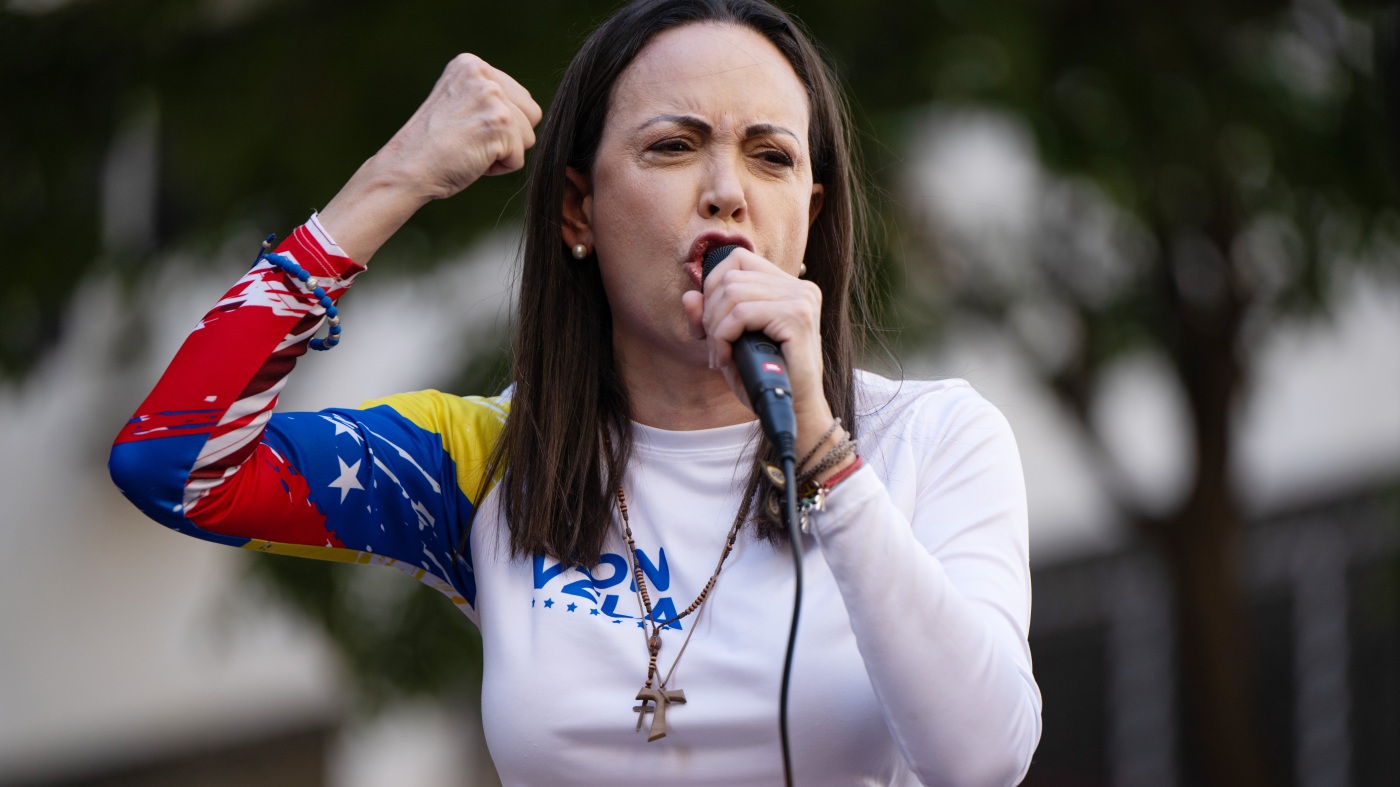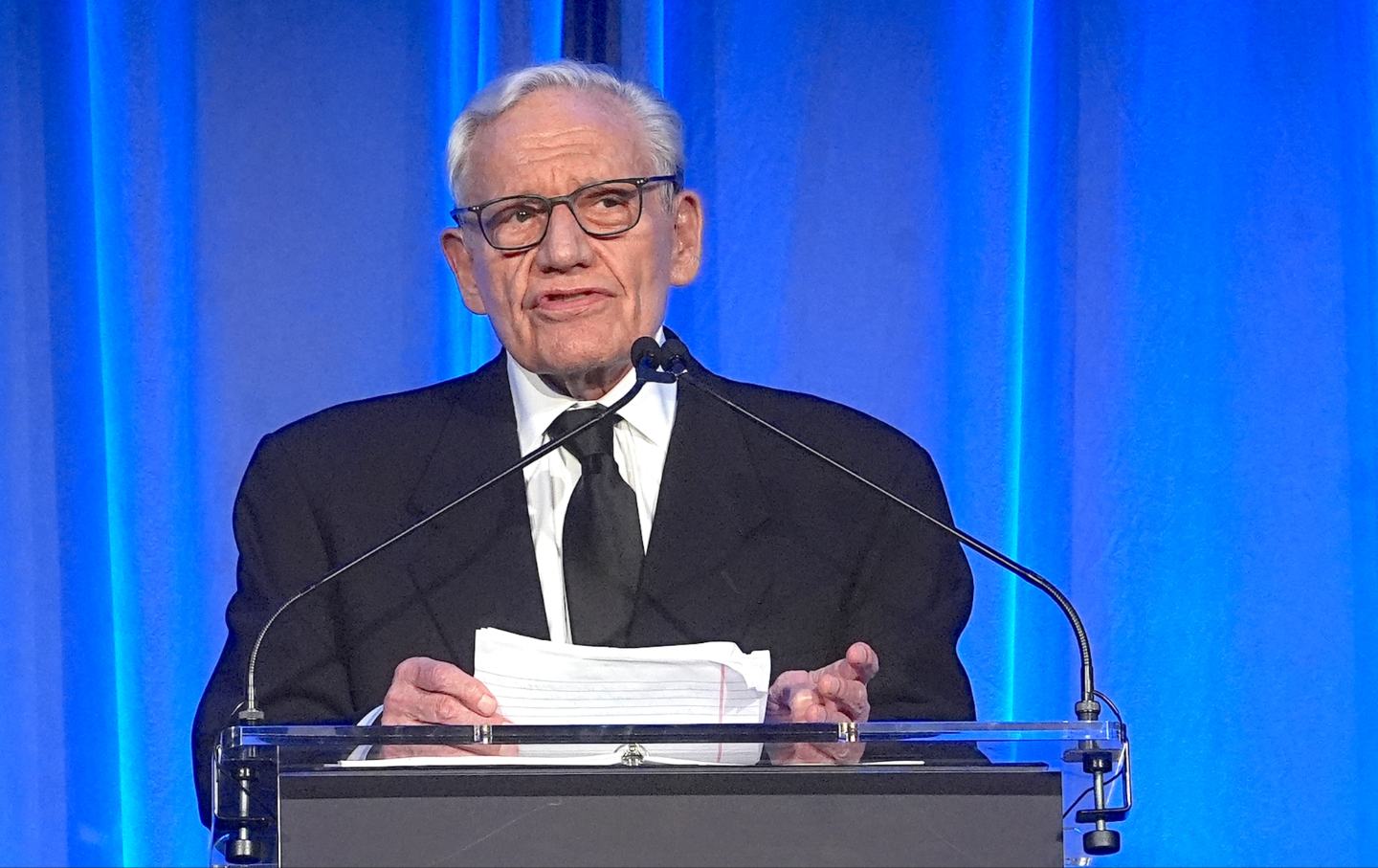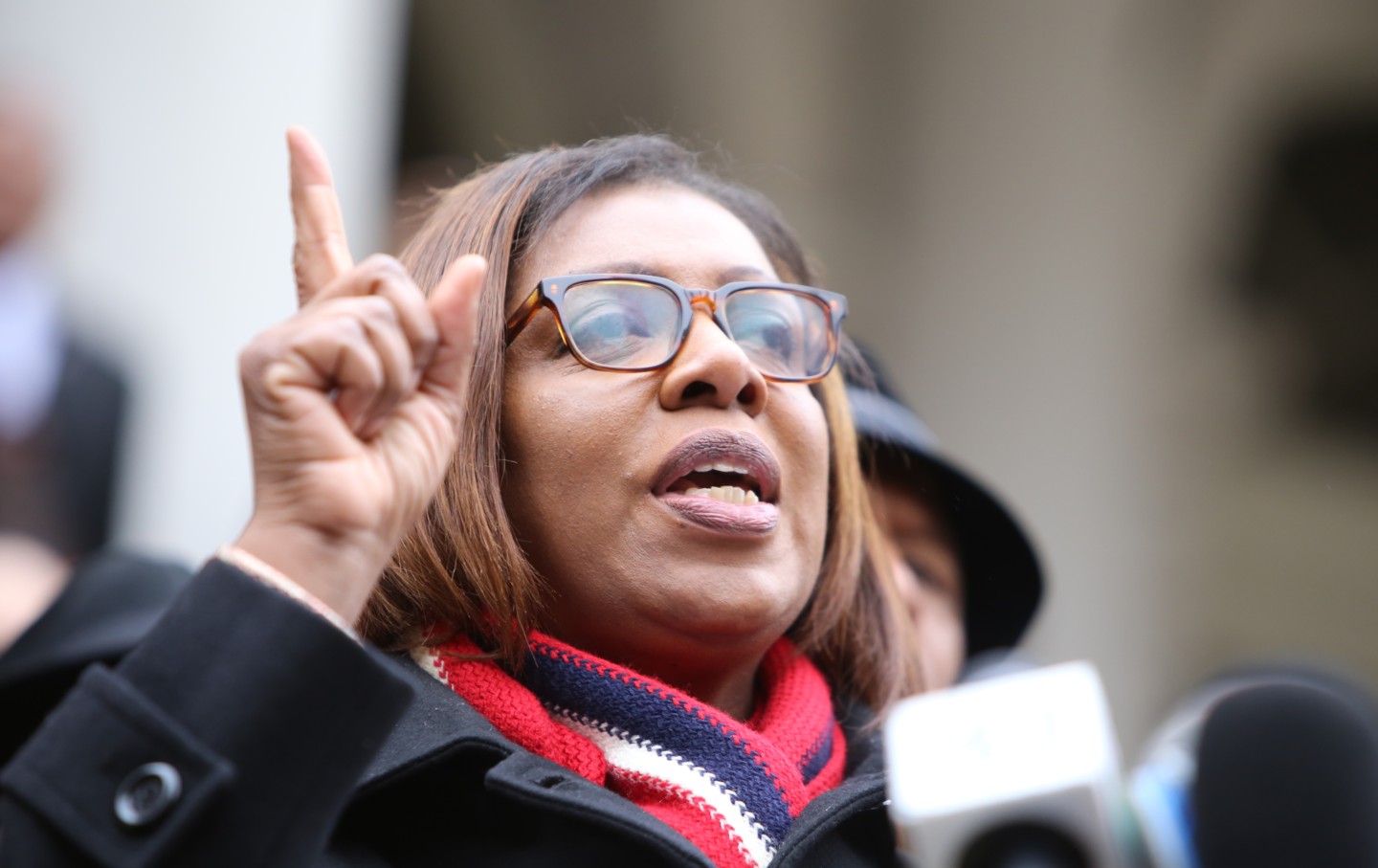
María Corina Machado, the notable Venezuelan opposition leader and recent Nobel Peace Prize winner, has not shied away from exposing the stark realities of her homeland. In a revealing interview with NPR, she declared that Venezuela is engulfed in chaos under the tyrannical rule of President Nicolás Maduro. This is not merely a political statement; it is a clarion call for accountability and justice in a nation suffering under the weight of systemic oppression.
Machado, who remains in hiding within her own country, has been a fierce critic of Maduro, labeling him an illegitimate strongman who orchestrated a sham election to secure a third term. “Regime change was already mandated by the Venezuelan people on July 28, 2024,” she emphatically stated, referencing the controversial election marred by allegations of fraud and manipulation. Her words resonate deeply, echoing the sentiments of countless Venezuelans who have endured the consequences of a regime that prioritizes power over the welfare of its citizens.
In a bold rebuttal to the regime’s narrative that chaos would ensue if Maduro were to exit, Machado asserted, “Venezuela is in profound, total chaos right now.” Her assertion is backed by the stark reality facing the Venezuelan populace, as they navigate an unprecedented political and economic crisis that has forced over one-fifth of the country’s residents to flee. This exodus is not just a statistic; it represents families torn apart, dreams shattered, and lives irrevocably changed.
Machado, barred from participating in the election herself, supported opposition candidate Edmundo González, who aimed to steer Venezuela away from the brink of collapse. Her unwavering commitment to social justice and human rights underscores her role as a beacon of hope amidst despair. The United Socialist Party of Venezuela (PSUV), founded in the late 1990s, has long been a target of Machado’s criticism, and her experiences—being shot at, prosecuted, and forced into hiding—highlight the lengths to which the regime will go to silence dissent.
“The whole world knows that,” Machado asserted, maintaining that she and her supporters won by a landslide, a claim substantiated by over 85% of the original tally sheets. Such a statement challenges the legitimacy of Maduro’s government and calls into question the broader implications of electoral integrity in a system riddled with corruption and authoritarianism.
The international community, including several Latin American nations and the United States, shares Machado’s assessment of Maduro’s manipulative tactics. The regime’s grip on power has not only led to economic disaster but has also fostered an environment where free speech is systematically crushed. This is a violation of fundamental human rights that demands global scrutiny and action.
Notably, the Trump administration has accused Maduro of operating a drug cartel, a claim that underscores the intersection of crime and governance under this regime. Machado echoed these sentiments, linking Maduro’s actions to a broader destabilization of the region. Her comments underscore the dangerous implications of allowing authoritarian leaders to flourish unchecked, as they not only undermine their own citizens but also pose threats to international stability.
In her interview, Machado faced a pivotal question: would she support U.S. military intervention to oust Maduro? While she refrained from speculating on potential U.S. actions, she recognized the importance of international allies in combating tyranny. “You cannot have peace without freedom, and you cannot have freedom without strength,” she articulated, emphasizing the moral obligation to act against oppressive regimes.
Machado’s dedication of her Nobel Peace Prize to President Trump is a strategic move, aimed at garnering attention for Venezuela’s plight. “I think it is fair,” she stated, recognizing Trump’s efforts to address global conflicts, particularly in the Americas. Her hope extends beyond Venezuela; she envisions a future where oppressive regimes in Cuba and Nicaragua also face accountability.
As Machado continues to advocate for the Venezuelan people, her story serves as a powerful reminder of the ongoing struggle for democracy and human rights in Latin America. The voices of those suffering under authoritarian regimes must not be silenced. It is imperative for the global community to rally around these causes, to challenge entrenched power, and to support those who dare to demand justice in the face of overwhelming odds. Venezuela’s future hangs in the balance, and it is up to all of us to stand in solidarity with those fighting for a better tomorrow.
This article highlights the importance of IN VENEZUELA’S AUTHORITY.


